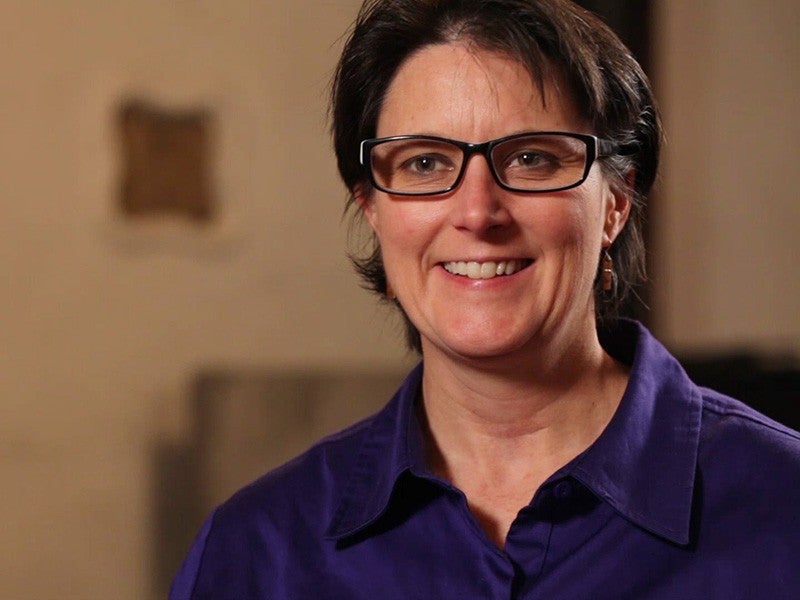Standing in Solidarity to End Fracking
In a guest blog post, Deborah Cipolla-Dennis, a New York activist, says fracking must be fought on the local level.

This page was published 11 years ago. Find the latest on Earthjustice’s work.
What does my 14,000-person rural town in upstate New York have in common with Los Angeles, one of the country’s largest metropolitan areas?
We’re both standing up to the oil and gas industry. And we’re winning.
In 2011, our local town board voted to ban fracking within our town borders—one of the first towns in New York to do so:
This month, Los Angeles leaders took a similarly courageous stand, passing a moratorium that would prohibit fracking within city limits unless studies show the practice would not harm the health of their community or their water supply.
In doing so, Los Angeles joined a coast-to-coast groundswell aimed at protecting people from the consequences of the fracking-enabled oil and gas rush. Last week, Santa Barbara residents announced they’re kicking off a petition drive for a fracking ban initiative.
Communities all over the U.S. have good reason to be concerned: Fracking, a process used to extract oil and gas from shale rock formations, has been associated with poisoned water, air pollution, and serious health problems, not to mention animal deaths and industrial disasters and explosions. Some of the hazardous substances associated with the practice include: cancer-causing benzene and deadly hydrogen sulfide. Many more of the hundreds of chemicals used in the fracking process are never revealed to the public even if there is an accident.
In spite of the risks, fracking has been deregulated to an alarming degree. The oil and gas industry has gained exemptions from critical portions of key federal laws designed to protect public health and the environment, including the Safe Drinking Water Act, the Clean Air Act, the Clean Water Act, and the Emergency Planning and Community Right-To Know Act. And in California, the state legislature passed and Gov. Gerry Brown signed a weak bill allowing fracking to proceed without a full environmental assessment of the safety, health and environmental risks.
With the state and federal governments failing to protect the public, local communities are a critical line of defense. Luckily, California communities have the power to use local zoning laws to protect themselves. That’s what we did in Dryden. And that’s what Los Angeles has done.
Our town of 14,000 stands in proud solidarity with the people of Los Angeles and Santa Barbara. We may be small—but we’re not alone. The elected officials in our little town alone have received more than 30,000 letters of support from people all around the country and world, cheering us on for taking a stand.
The oil and gas industry often threatens to sue communities that take on fracking. In our case, they actually did. But we’ve beaten them at every turn, winning two rounds against them in New York state courts. This spring, our case will be heard by New York’s highest court. And, with the help of our pro-bono attorneys at Earthjustice, we’re confident that we’ll prevail.
Anschutz Exploration Corporation, owned by billionaire Philip Anschutz (who also owns L.A.’s Staples Center), was the first company to sue us. After losing in the first court battle, Anshutz pulled out. Norse Energy stepped in and appealed the case; they have since gone bankrupt.
Last week, I joined a delegation of people from fracking impacted and threatened communities to travel up and down the state of California, educating people about the dangers of fracking and more importantly: what people can do about it.
The nationwide tour, sponsored by Stop the Frack Attack—a 136-group coalition—is traveling to states where the oil and gas industry is poised to begin major activity using this dangerous and controversial technique.
We traveled to Sacramento, Merced and Los Angeles this month. We’ve learned that more and more communities have been stepping up. But there’s lots more work to be done. Get involved.
An earlier version of this blog appeared in the Huffington Post.
Earthjustice’s Washington, D.C., office works at the federal level to prevent air and water pollution, combat climate change, and protect natural areas. We also work with communities in the Mid-Atlantic region and elsewhere to address severe local environmental health problems, including exposures to dangerous air contaminants in toxic hot spots, sewage backups and overflows, chemical disasters, and contamination of drinking water. The D.C. office has been in operation since 1978.